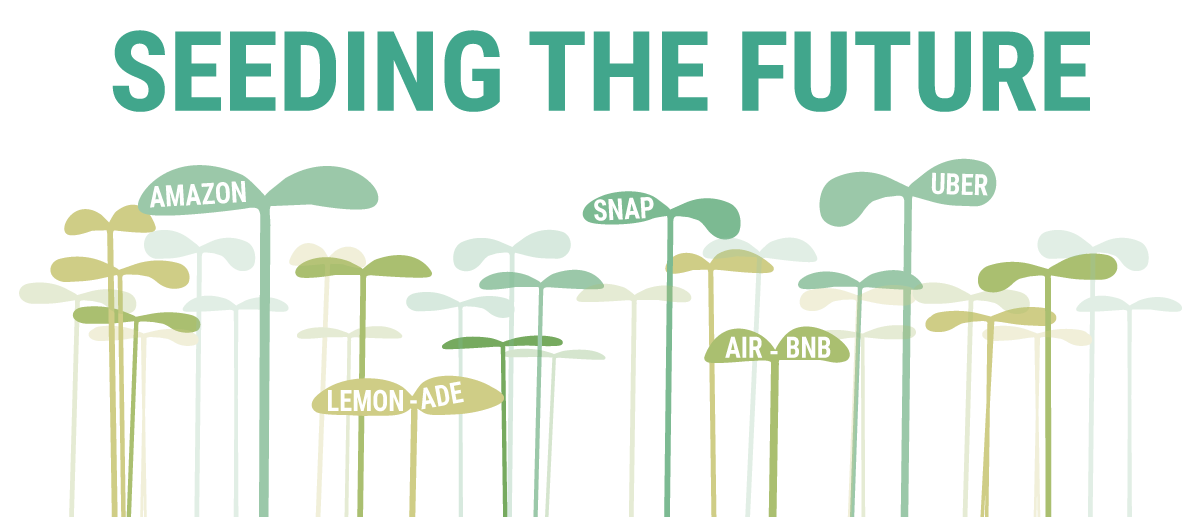Seeding the Future: Measuring The Founder

Our “Seeding the Future” series explores trends, opportunities, and companies from the seed and pre-seed venture world. This is the investment focus of AVG’s newest Basecamp Fund.

The fund is now open! Click below to learn more.
At the seed stage, a company is just starting to get off the ground, building product, understanding their customer base, and hopefully some revenue. So instead of focusing on financials, seed-stage venture capitalists will base their investment decision upon the market opportunity, the pain point to solve, early customer traction, competitive landscape, barriers to entry, and business model potential. And most critically, they will assess the team — more specifically, the founder.
VC checklists and scorecards will vary, but here are common considerations when critiquing a founder and founding team:
- Relevant technical expertise
- Relevant business and domain experience
- Demonstrated ability to quickly learn, listen, and grow
- Determination, energy, maturity, humility, good judgment, passion, and commitment
- Communication skills and persuasiveness
- Understanding the customer journey and product experience
- Compatibility and balance of team, plus ability to recruit a team
- Connections (money, industry, advisers, potential customers)

This might sound like simply common sense, but there’s lots of research to back up the checklist. Here’s what various studies report about factors that can count when it comes to a founder and team success.
- Past business success. Founders of a previously successful business have a 30% chance of success with their next venture.
- Past IPOs. Stanford University research states that “the number of prior firms going public [per founder] increases the next firm’s revenues by an average of 115% each.”
- Failing is a positive. Founders who have failed at a prior business have a 20% chance of succeeding versus an 18% chance of success for first-time entrepreneurs.
- Two heads. Two founders significantly increases your odds of success. You will raise 30% more investment, grow customers 3 times as fast, and will be less likely to scale too fast, burning cash.
- Tech plus and minus. Teams with a technical co-founder have a huge leg up in delivering products for enterprise companies: performing 230% better. However, in consumer companies, non-tech teams do better than the techies.
- Pedigree and mentor bounce. Prestige from an association with renowned investors or accelerators can assist a startup’s prospects. For example, Y Combinator accelerated startups are 3x more likely to become unicorns. Add to that, startups with a mentor get up to speed more quickly (growing 3.5x faster) and are more successful fundraisers (7x more money).
- Gray heads. A 50-year-old is 2x more likely to succeed than a 30-year-old. And for a 60-year-old, the odds increase to 3x.
- Richness in diversity. Diverse teams outperform those that aren’t diverse.
- Timing is everything. The team’s ability to make progress at the right rate is key. Over 70% of startups fail because they try to scale too quickly, putting cash burn ahead of operating progress. On the other hand, extended development time most often kills innovation. The rate of progress is critical to success, with founders needing to acknowledge things generally take 2-3x longer than anticipated.
So to sum up, it’s an idea that hits a real market need at a unique point in time that is well executed by a deeply talented and committed founder — and a little luck — that lead to outsized early stage success.

AVG’s Basecamp Fund offers investors a portfolio of ~100 pre-seed and seed investments diversified across sector and region. Approximately 25% of the fund is reserved for follow-on investments. Minimum starts at $25K. The fund is now open! Click below to learn more.
Contact [email protected] for additional information. To see additional risk factors and investment considerations, visit av-funds.com/disclosures.